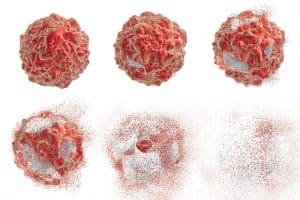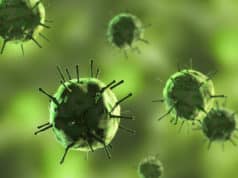 Most people know that cancer treatment works by making tumors in the body smaller. Unfortunately, most of the time, it is impossible for cancer treatment to eliminate the tumor entirely. There is also always a good chance that the cancer cells can multiply quickly and the disease can come back in full force. Some cancers are so powerful and aggressive that even the treatment does not really make the tumor smaller.
Most people know that cancer treatment works by making tumors in the body smaller. Unfortunately, most of the time, it is impossible for cancer treatment to eliminate the tumor entirely. There is also always a good chance that the cancer cells can multiply quickly and the disease can come back in full force. Some cancers are so powerful and aggressive that even the treatment does not really make the tumor smaller.
A lab at the Germany Department of Internal Medicine may have begun to combat this problem in cancer treatment. The lab has recently made discoveries about a way to have cells and tissues in the body reproduce themselves after injury to help people recover.
These new discoveries might be helpful in the fight against cancer because they help scientists understand the structure of cells and how they work. This could help the researchers understand what it is about cancer cells that help them to avoid treatment from doctors and multiply into a much bigger and stronger disease.
Certain drugs and treatments have already been developed that block cancer cells from multiplying, and in some instances, these treatments even kill the cancer cells. However, these cancer treatments have been unable to kill all the cells in a tumor to this point. This means that some cancer cells multiply through a process that doctors and researchers do not understand yet. They use the structure of their cells to avoid the treatment somehow.
 A study performed by Steve Poser is beginning to help doctors understand this problem. Poser and his colleagues studied patients that had brain cancer, and found that when treatment was given to these patients, the cancer cells would recognize that they were in danger and adapt. The cells would use a different technique to multiply that was unaffected by the treatment. The researchers realized they needed to stop the cancer from being able to use this different technique.
A study performed by Steve Poser is beginning to help doctors understand this problem. Poser and his colleagues studied patients that had brain cancer, and found that when treatment was given to these patients, the cancer cells would recognize that they were in danger and adapt. The cells would use a different technique to multiply that was unaffected by the treatment. The researchers realized they needed to stop the cancer from being able to use this different technique.
Poser and his team did this by observing which cancer genes were “switched on” when they used this different technique to multiply. Then they developed treatments that worked against those genes, and therefore, the cancer could not multiply using the different technique. Similar treatments have already been approved and are in use for diseases other than cancer, but oncologists are hopeful that these treatments will come to the field of cancer study soon. The study provides a new method to identify and destroy “hard-to-kill” cancer cells and could be the cancer treatment of the future.


























